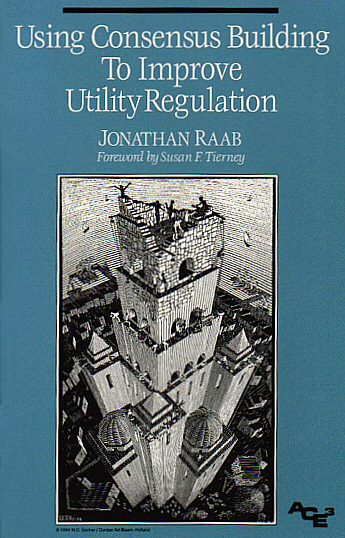

By Jonathan Raab, Ph.D.
Foreward by Susan F. Tierney
Copyright 1994 by the American
Council for an Energy Efficient Economy
 Summary:
Summary:
The utility industry and its regulatory environment are at important
crossroads. Utilities, intervenors and even public utility commissions are
no longer able to initiate and sustain changes unilaterally. Meanwhile,
traditional approaches to regulation are often contentious and costly, and
produce results that stakeholders do not perceive as either legitimate or
practical.
Consensus building and alternative dispute resolution have
the potential to help utilities, intervenors and regulators resolve the
host of issues confronting them. Participants are experimenting with several consensus-based options. Including
technical sessions, settlements, collaborative processes, and negotiated
rulemaking.
This book traces the decline of consensus in utility
regulation and delineates controversies. It presents the theory
and practice of alternative dispute resolution in utility regulation and
offers a framework for evaluating the successes and failures of each
attempt to employ these processes. Four cases are analyzed in detail:
• the Pilgrim nuclear plant outage settlement
• the use of
demand-side management collaboratives
• the New Jersey resource bidding
policy settlement
• the formation of integrated resource management
rules in Massachusetts
These examples provide evidence to support
eight principles that could improve and expand consensus building in
utility regulation in the future.
This is an invaluable resource for
anyone currently involved in utility issues or concerned about the future
of utility regulation. It should also be useful for individuals interested
in applying consensus building techniques to other public policy disputes.
Price (includes
domestic shipping, please email us for international shipping rates):
$28
To Order:
Please email us with your request: susan@raabassociates.org